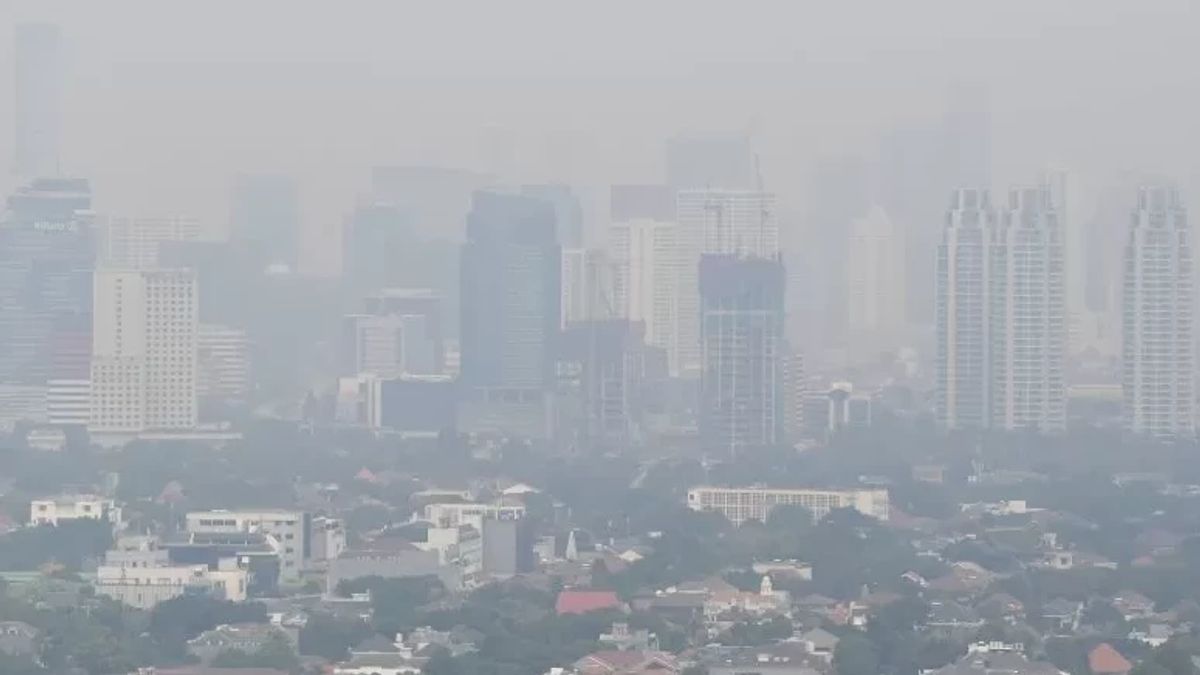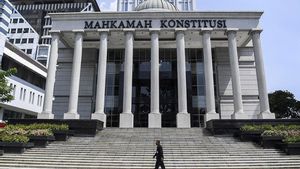JAKARTA - The DKI Jakarta Provincial Government (Pemprov) conducts weekly observations of diseases related to the unhealthy quality of Jakarta air.
"We always make weekly observations of potential KLB (extraordinary events) diseases that are expected to be related to air quality," said Head of the DKI Jakarta Provincial Health Office Ani Ruspitawati as reported by ANTARA, Wednesday, June 7.
Ani explained that the diseases associated with air quality in Jakarta are endemic (always present) and can be seen from the trend of cases based on time.
" endemic infectious diseases commonly associated with air quality (polutan / pollutation) include ISPA (acute respiratory tract infection), COPD (chronical obstructive pulmonary disease) and pneumonia (pulmonary condition)," explained Ani.
Meanwhile, diseases that are usually associated with climate conditions, said Ani, such as humidity, rainy or dry season, and so on, namely dengue hemorrhagic fever (DHF), diarrhea, bacterial disease (typhoid) and hepatitis A.
Ani said the trend of diseases that are estimated to be related to air quality has almost completely increased, except for dengue fever due to humidity.
"Further studies are needed to ensure that the increase in cases of several diseases is related to air quality in DKI Jakarta," said Ani.
Based on data from the DKI Jakarta Health Office (Dinkes), the disease of Pneumonia in DKI Jakarta in early 2022 reached around 200 people, while in 2023 in the same week it rose to 400 people.
Then, the case of Jakarta's influenza-like Illness (ILI) in 2022 week 21 will reach around 300 people, while in 2023 it will decrease to less than 100 people.
Then, the case of acute DKI Jakarta diarrhea in 2022 week 21 reached around two thousand more people, while in 2023 it rose to 6,000 people.
また読む:
Similar to the case of typoids in DKI Jakarta in 2022, the 21st week reached almost 300 people, while in 2023 it rose to 400 people.
Unlike other cases, dengue fever has decreased drastically. In 2022 the 21st week reached nearly 200 people, while in 2023 it dropped drastically to below 100 people.
Previously, on Tuesday (6/6), the air quality index in Jakarta was at 120 with a PM pollutant of 2.5 and the concentration value was at 43.1 amicrons/m3 (micrograms per cubic meter).
With that number, Jakarta is in fifth position in the world with bad air producers.
Responding to this, Ani hopes that the air quality in DKI Jakarta Province and its surroundings will improve with the cooperation and role of the government together with the community.
The English, Chinese, Japanese, Arabic, and French versions are automatically generated by the AI. So there may still be inaccuracies in translating, please always see Indonesian as our main language. (system supported by DigitalSiber.id)













